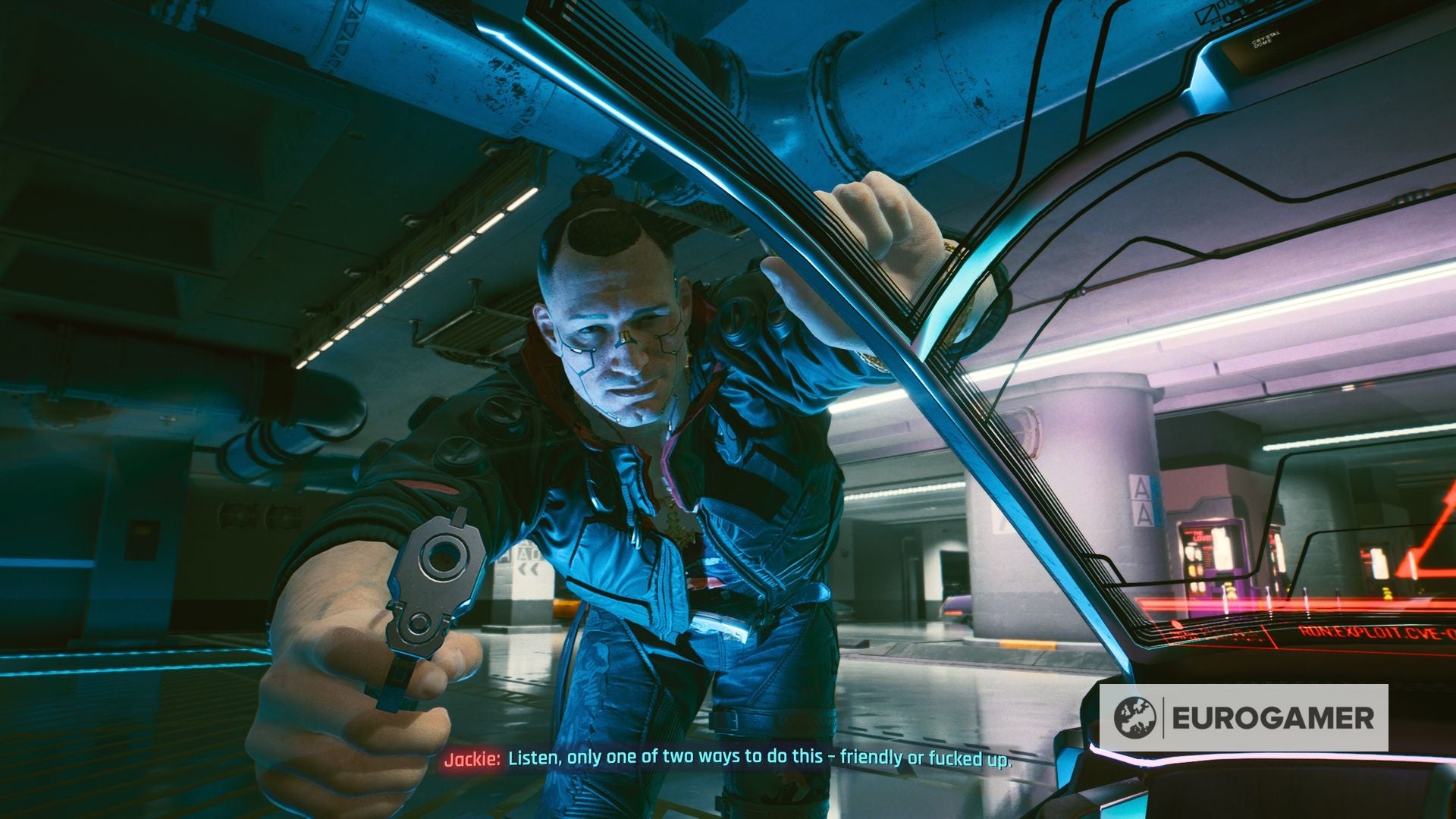It is also, honestly, quite a good game. And those two things can be true at once! This is the nature of big budget video games and Cyberpunk 2077 is, if anything, an exercise in understanding that. Playing around with the latest “next-gen” patch only brings it into sharper focus. If you haven’t read the patch notes - of which there are many - there are a lot of things it fixes, tweaks and adds. You can have multiple apartments now. You can filter those godforsaken phone calls (I swear, on a tight review deadline, that thing almost put me over the edge). You can change your hair. The purpose of all this is “quality of life”, a term I’ve come to loathe. Cyberpunk 2077 players have a terrible quality of life (see: that phone) and much of the furore, aside from some occasionally thoughtful observations about its tone, has been about that. Some of it’s reasonable (Why don’t crowds react to you properly? Why are some perks a bit useless? Why does this motorcycle turn like a bus?) and some less so (Why can’t I have an auto-walk button? Why don’t cars have realistic driving patterns when I look at them through a telescope from two miles away?) The patch is an attempt at getting to all that. There are more realistic crowd behaviours - although honestly, only kind of. The map’s a bit easier to read, in a way. Guns are cheaper and motorbikes can now actually turn around. I’ve read through these notes a couple of times, had a tinker on a new save with a Series X, and fired up my old endgame one on a fancier PC. But thinking about them really only gets me to one conclusion: I simply do not care. I should clarify. I don’t care about these changes because I don’t think these things, the gubbins, the ever-present trappings of every open-world RPG from the last decade, are the things that matter about Cyberpunk 2077. These are not what make the good bits of games like Cyberpunk good, and they don’t make the bad bits any more relevant. Cyberpunk, above all, is built on and carried by its characters, its story of a struggle for humanity - the actual sense of humanity, the feeling of being a human - in an inhuman environment created by humans. It’s a game about hope and fear, and what it means to matter to be alive, about finding little flickering wisps of life to try and grab onto, and about the timeless irony of all that. The way human beings like to undermine ourselves when greed, unregulated and unleashed, is the undoing of everything that actually matters for human happiness. This is, really, the entirety of what you should pay attention to in Cyberpunk. The game is a good story, with good writing and some voice direction and delivery that is genuinely unparalleled in this medium, even a year-plus later. Treat its world, which is oddly dead and inhuman, like it’s the film set it so obviously wants to be. Treat its weapons like props, its gear like costume design. Treat everything else like noise. What Cyberpunk wanted to be - maybe what it once planned to be at some stage of development, what some of its lingering developers might hope for it to someday be, and certainly what its marketers made it out to be - is a gigantic, systemic open world. An impossible crossing of the breadth and detail of a Rockstar joint with the systems of Deus Ex or something from Arkane. This is what we were sold, what was pitched at those infamous E3 previews, what it looked like in the vertical slices and mini-demos we all saw together. This is also what we’re sold every day by these types of games, an identical kit-car package of features that you can unbox and bolt onto any open world you find. Looting! Crafting! Levelling up! We were promised a good old traditional triple-A video game where you can do things like instantly grow hair by looking in a mirror, and put your 13 pairs of identical Uncommon Armoured Shoes in one apartment stash and have it automatically appear in another. Those parts of Cyberpunk 2077 were bad then and they’re bad now, but fixing them will do nothing to make this game any better. The good Cyberpunk is weird and sincere and uncomfortable to be in. It’s suffocating, oppressive, miserable, provocative. It is (still) annoyingly loud. It’s ugly as sin. And it couldn’t have been made by anything but humans. This is why you should play it, and why smoothing over its rougher edges won’t lessen that, but it won’t add anything to it either. You don’t make “quality of life” improvements to art.

